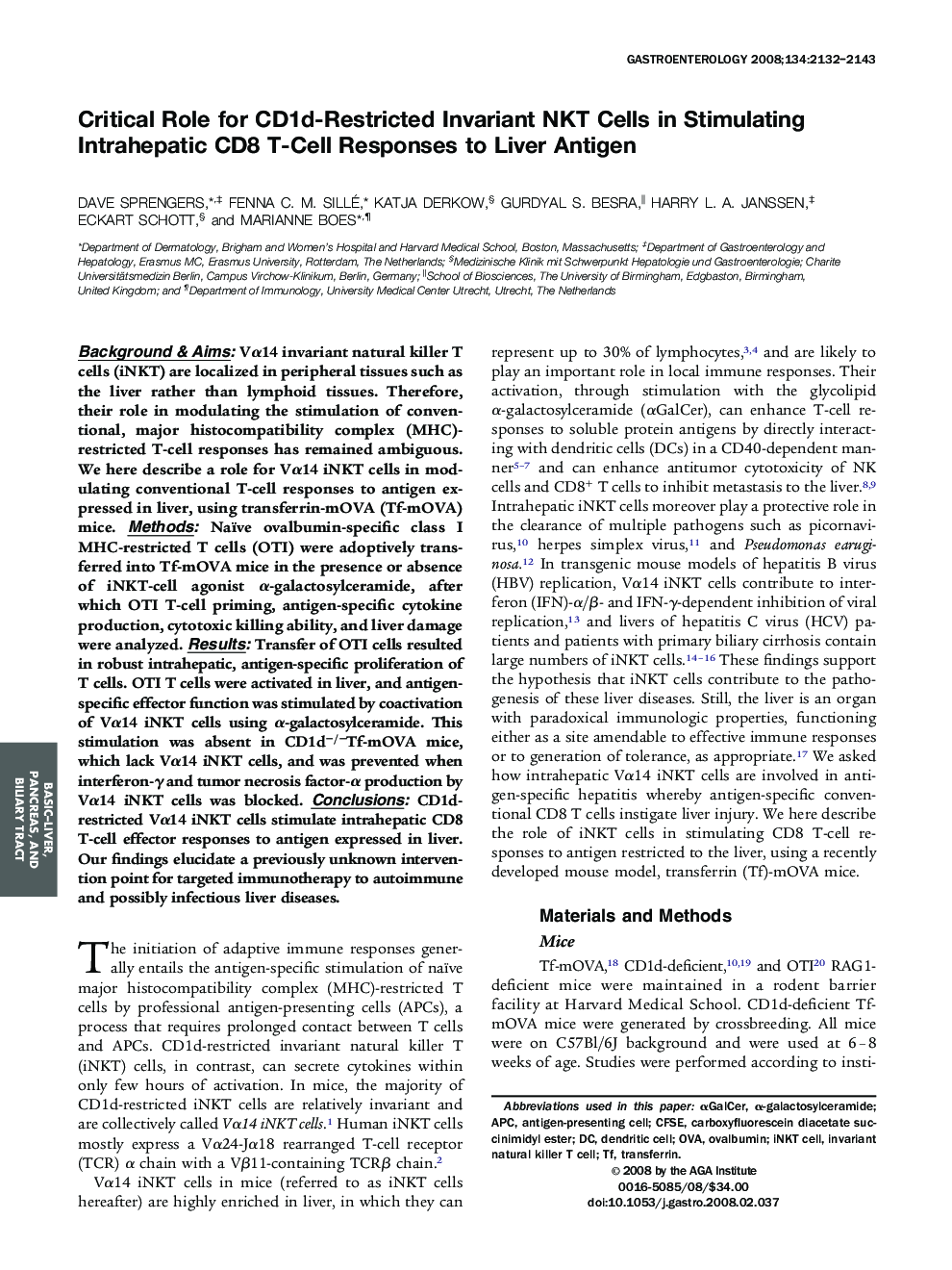| Article ID | Journal | Published Year | Pages | File Type |
|---|---|---|---|---|
| 3296693 | Gastroenterology | 2008 | 12 Pages |
Background & Aims: Vα14 invariant natural killer T cells (iNKT) are localized in peripheral tissues such as the liver rather than lymphoid tissues. Therefore, their role in modulating the stimulation of conventional, major histocompatibility complex (MHC)-restricted T-cell responses has remained ambiguous. We here describe a role for Vα14 iNKT cells in modulating conventional T-cell responses to antigen expressed in liver, using transferrin-mOVA (Tf-mOVA) mice. Methods: Naïve ovalbumin-specific class I MHC-restricted T cells (OTI) were adoptively transferred into Tf-mOVA mice in the presence or absence of iNKT-cell agonist α-galactosylceramide, after which OTI T-cell priming, antigen-specific cytokine production, cytotoxic killing ability, and liver damage were analyzed. Results: Transfer of OTI cells resulted in robust intrahepatic, antigen-specific proliferation of T cells. OTI T cells were activated in liver, and antigen-specific effector function was stimulated by coactivation of Vα14 iNKT cells using α-galactosylceramide. This stimulation was absent in CD1d−/−Tf-mOVA mice, which lack Vα14 iNKT cells, and was prevented when interferon-γ and tumor necrosis factor-α production by Vα14 iNKT cells was blocked. Conclusions: CD1d-restricted Vα14 iNKT cells stimulate intrahepatic CD8 T-cell effector responses to antigen expressed in liver. Our findings elucidate a previously unknown intervention point for targeted immunotherapy to autoimmune and possibly infectious liver diseases.
